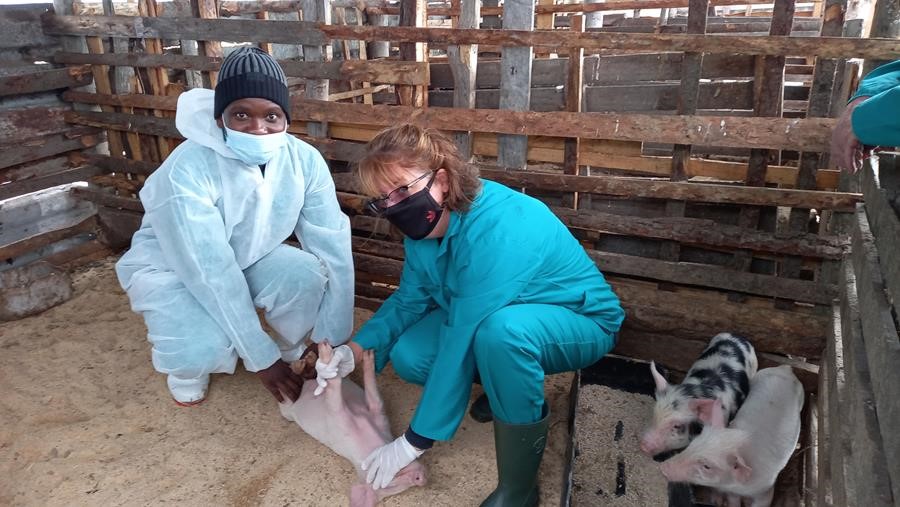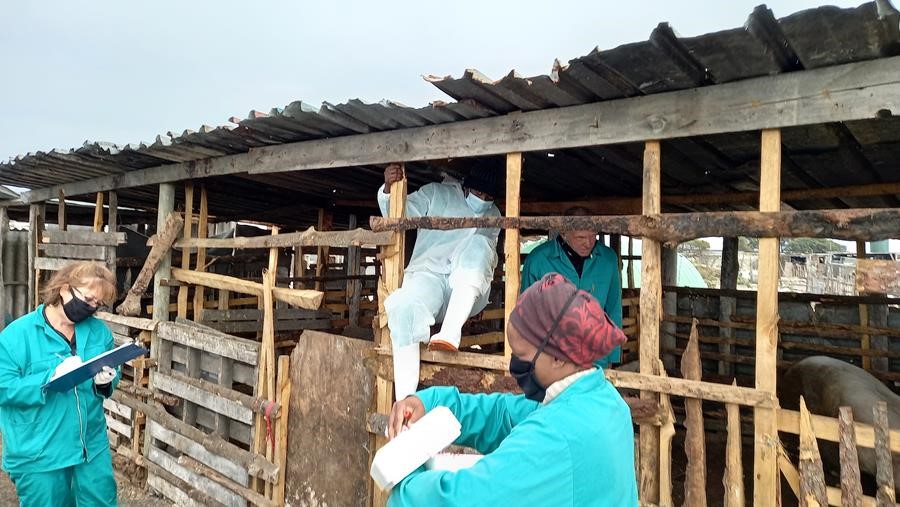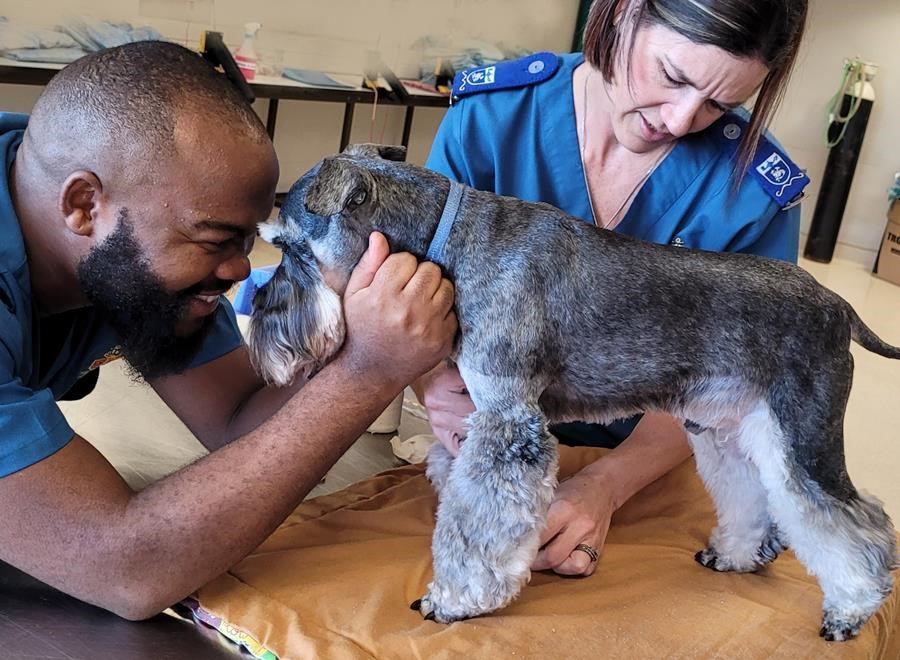South African rural dwellers and small-scale farmers are set to have increased access to primary animal healthcare with the promulgation of new rules for para-veterinary professionals that allow animal health technicians (AHTs) to open and own their own practices. Veterinary nurses are now also able to open their own facilities.
The South African Veterinary Council (SAVC) has welcomed the introduction of new rules for the para-veterinary professions, which came into effect in December 2022. These rules will not only increase access to animal healthcare in South Africa, but also promote food safety and security.
Says SAVC president Dr Nandipha Ndudane, “We are confident this move will broaden access to primary healthcare services for animal owners and small-scale farmers in rural and underserved areas, and will create much-needed new income streams for these professionals. It’s time for our AHTs and other para-veterinary professionals to claim their rightful place in the sun.”
A recent SAVC survey, funded by the Health and Welfare Sector Education and Training Authority, revealed that a significant number of South Africa’s emerging and small-scale farmers do not make use of veterinary services at all, notwithstanding owning a third of the country’s cattle and sheep.
Now, in what Dr Ndudane says could be a “game-changer” for rural animal healthcare, AHTs will be better equipped to provide training and education to emerging farmers about livestock diseases and how to prevent them. They will also be ideally placed to advise them when to seek veterinary care for sick or injured animals.

Animal health technicians working with livestock.
“This will hopefully contribute to the health of the national herd by ensuring the integrity of the animal proteins we consume, while always being mindful to avoid the overuse of antimicrobials due to the use of stock remedies in the food chain.”
An AHT can now establish a Primary Animal Health Care (PAHC) facility from which to offer on-site or mobile consultation services, which must be linked to a physical PAHC facility. An AHT can also sell stock remedies. The PAHC facility must be registered with the SAVC and comply with the prescribed minimum standards.
Adds Mr Thabiso Mohlabi, an SAVC Council member representing the AHT profession, “I can only define the new rules as a bold step to protect rural livelihoods and unlock the economic potential of rural areas. The rules assure the rural dweller of enhanced access to quality para-veterinary services and seek to eradicate patterns of underdevelopment in rural areas. They essentially allow AHTs to put their ideas into practice, and to actively engage in work that interests them and for which they have been trained.”
The SAVC’s research also showed that South Africa’s para-veterinary professionals yearn for more independence in their lines of work. They are hungry for more career and professional growth opportunities to enhance their earning potential – which the new rules open a pathway to achieving.
In keeping with this, the newly promulgated para-veterinary rules also enable veterinary nurses to open their own veterinary nursing facilities – a significant step forward in cementing the autonomy of these professionals.
Dr Ndudane also lauds this as a progressive move, “as it will enable veterinary nurses to offer recuperative and post-operative care to animal patients on their own premises, often in consultation with veterinary surgeons. We anticipate that most of these new veterinary nurse practices will be established in urban areas, close to the veterinary facilities they will be contracted to or where pet owners are more concentrated.”
In terms of the new legislation, veterinary nurses may open a veterinary nursing facility (that must be registered with the SAVC) and offer basic animal care (such as beak and nail clipping), undertake catheterisation without sedation, administer medicine prescribed by a vet and vaccinations, lance abscesses and care for wounds, and offer physical rehabilitation.

A team of animal health technicians working in the field.
Some of these services may be performed without veterinary supervision, but others require a referral from a veterinarian.
Sister Erika Bornman, who represents the veterinary nursing profession on the SAVC, says, “This is indeed a very positive development for our profession as it is the first time that we can run and own businesses for our own gain, independent of veterinary supervision under certain circumstances. The profession can now stand on its own and, with creative collaboration with the veterinary profession and other para-veterinary professions, it will widen access to our services.”
Furthermore, the SAVC’s rules relating to the practising of the relatively new para-veterinary profession of veterinary physiotherapist in South Africa have been gazetted and came into effect in February 2023. Veterinary physiotherapists are officially categorised as para-veterinary professionals.
The SAVC is hosting webinar workshops on the revised rules for the various veterinary and para-veterinary professions during April, which will be available to view on www.savclive.co.za afterwards.
Here are the new rules for para-veterinary professionals:
- New rules for AHTs
- New rules for laboratory animal technologists
- New rules for veterinary technologists
- New rules for veterinary nurses
- Newly promulgated rules for veterinary physiotherapists
Source: SAVC









